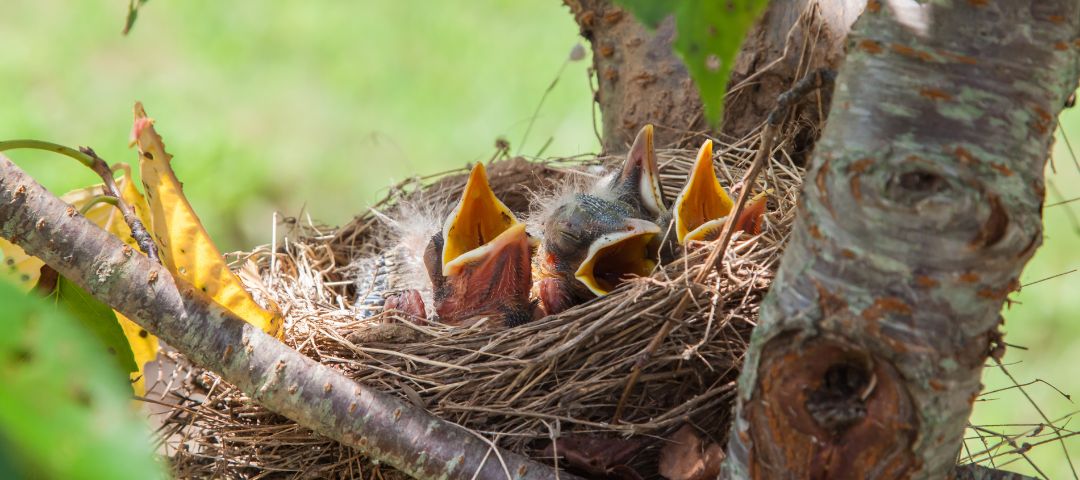We can help wild animals

• Wild animals experience tremendous suffering due to natural causes like hunger, disease, weather, injuries, and conflicts
• There are ways to help wild animals now on a limited scale
• More research and technology could find new ways to help
• Since most animals who ever live will exist in the future, considering them matters greatly
Animals living in the wild undergo daily hardships. Hunger, illness, extreme weather, injuries, and attacks from other animals are everyday realities that routinely inflict pain and distress. The vast majority of wild animals die shortly after birth, often agonizing deaths from starvation, dehydration, and exposure to the elements.
This colossal scale of suffering has been largely ignored and neglected by society. There is little public awareness of the plight of animals in nature. Scientific research specifically aimed at understanding and reducing the misery and distress of wild animals is also scarce. However, there are reasons to be hopeful that the future can be better for wild animals. We can take action now to help wild animals and expand concern for their wellbeing.
The problem
To begin to comprehend the immensity of the issue, consider that quintillions (1018) of wild animals exist at any given time. Animals are born and die at extremely high rates, so the total number dying at any given moment is astronomical. Mortality rates for newborns often surpass 90 percent. Babies who do not starve or die of thirst are highly vulnerable to exposure to the elements, disease, and attacks from other animals. The outlook remains uncertain for those who make it past the initial critical days and weeks. Injuries and illnesses almost always go untreated in nature. Cuts easily become infected and turn fatal. Parasites, viruses, and bacterial infections lead to chronic debilitating health conditions. Weather extremes of severe heat, cold, drought, and storms bring cycles of discomfort, starvation, and death. Conflicts with other animals over scarce resources, mates, and territory also routinely end in violence and pain.
We can change things
Despite the daunting scope of suffering, there are reasons to be optimistic that we can make progress. Many methods of directly helping wild animals already exist, although only on a limited scale currently. Supplemental feeding provides nourishment to animals struggling to find food. Shelters and veterinary care treat illness and injury. Vaccination against contagious diseases has been successful for some wild animal populations. For example, bait containing vaccines has been aerially distributed to reduce the spread of rabies among foxes and raccoons. This kind of oral rabies vaccination has nearly eradicated the disease among foxes in parts of Europe. Research specifically on wild animal welfare could yield innovative new approaches to monitor animals so we’ll know when they need help. Advanced technologies may enable additional means of assistance in the future. For instance, recent advances in bioacoustics can help us better understand animal communication and distress signals.
Signs of expanding moral concern in society offer hope, too. Outrage over factory farming indicates increasing awareness and objection to institutionalized animal abuse. As awareness spreads that all sentient individuals deserve consideration regardless of species, more attention should turn toward helping wild animals. Since the vast majority of animals who ever exist will exist in the future, improving the future for them through current advocacy is especially impactful. Much of what we accomplish now will propagate forward. For example, halting the farming of insects like crickets could prevent immense future suffering on Earth. Because of their vastly smaller size, many more will be farmed and killed if people switch from eating mammals and birds to insects. Even more importantly, the scale would become truly astronomical if future humans were to colonize other planets and export insect farming.
What you can do
Individuals can contribute to the much needed change in the ways that work best for them. Spreading awareness about wild animal suffering is a fundamental way that almost anyone can contribute to. Supporting organizations that work to help animals is also hugely beneficial. Proposing and supporting policies that implement antispeciesist approaches makes progress more systemic. Contributing to scientific research on monitoring wild animals and devising new methods of assistance advance the knowledge we need to help make their lives better.
People can also find ways to help through their careers in biology, ecology, data science, philosophy, law, or journalism, to name a few. But most importantly, each of us can adopt a mindset that values the wellbeing of all sentient beings. Expanding moral concern and pushing for a better future is possible through persistence, creativity, and caring about all sentient individuals.
The hardship that wild animals endure is on an almost inconceivable scale, yet it has gone largely unnoticed. Quintillions of vulnerable lives are filled with unnecessary pain. However, change is achievable. By working together, we can expand concern for all sentient beings and create a more just world for countless animals.